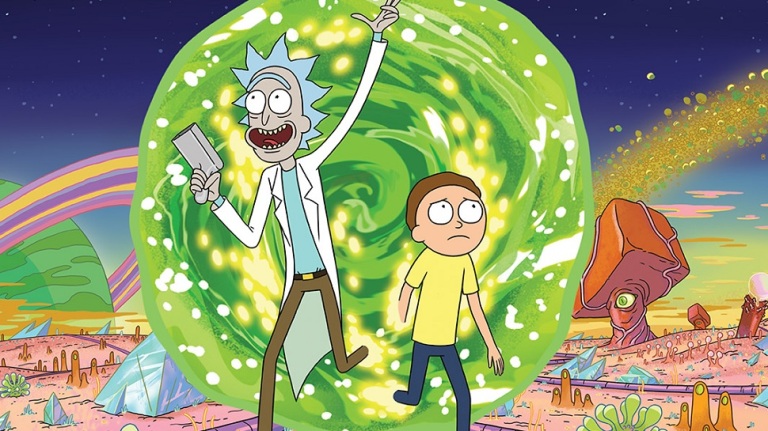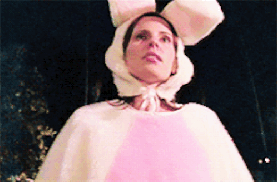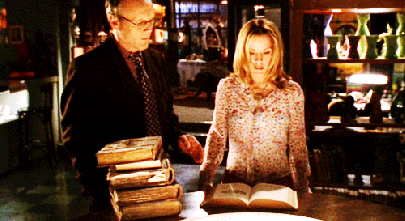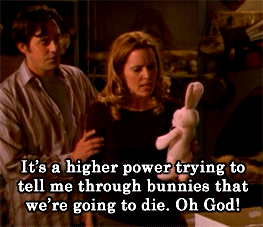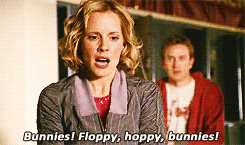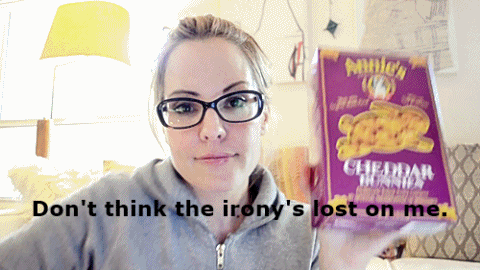“Wubba lubba dub dub!” – Rick Sanchez
PSYCHOLOGICAL REPORT
Name: Rick Sanchez (Dimension C-137)
Current Age: 60
Ethnicity/Race: Human
Education: Unknown (on the intake forms, Rick wrote “School is a waste of time and is NOT for smart people.”)
Employment: Scientist and Inventor
Date of Initial Interview: August 6, 2017
Date of Report: September 5, 2017
Therapists: Brandon T. Saxton, M.S., Katie Gordon, Ph.D.
Presenting Problem
Rick Sanchez was referred to us by Dr. Wong, a family therapist. Dr. Wong saw Rick and his family for a session following incidents involving his grandchildren, Summer and Morty, at school. Dr. Wong referred Rick for a diagnostic assessment to provide diagnostic clarity and assist in treatment planning for Rick. She believes that Rick has some challenges to overcome in individual therapy before any effective progress can be made in their family therapy sessions.
Dr. Wong suggested that Rick has many interpersonal problems and negative views of authority, emotion, and those who he deems as less intelligent than himself. Additionally, Dr. Wong reported concern with Rick’s alcohol use.

Family History
Rick is the father of Beth Smith, and grandfather to her two children, Summer and Morty Smith. Rick’s son-in-law is named Jerry Smith, and he is currently separated from Beth. Rick seemed hesitant to speak much about his wife, Mrs. Sanchez. It was not clear to the interviewer whether she was currently alive or deceased, though either way, Rick reported having left her when he returned to live with his daughter and grandchildren, after having been away for twenty years.
Rick reported that, “of course he likes his daughter and grandchildren” (though he stated he has proven, mathematically, that they are both pieces of sh*t). Rick seems to have a hard time balancing his love for his daughter and grandchildren and his need for independence and avoidance of emotion and connection. Although to their faces he appears distant and acts hurtful, on more than one occasion he has shown his deep affection for them (e.g., complimenting Beth’s cooking in the pilot episode, hiding the truth about the Purgenol in the candy bar Morty ate in Look Who’s Purging Now, or beating up the Devil who hurt Summer in Something Ricked This Way Comes).
One area that Rick was clear about was not liking his son-in-law, Jerry Smith. Rick stated that he does not believe that Jerry deserves to be with his daughter. Additionally, and frighteningly, Rick stated that he manipulated Beth into kicking Jerry out of their house because Jerry crossed him by suggesting the family turn Rick in to the Federation (end of Season 2, beginning of Season 3).
Educational/Employment History
Rick declined to report whether or not he had any formal education. In a previous conversation with his son-in-law, Jerry, Rick stated “I’ll tell you how I feel about school, Jerry: it’s a waste of time. Bunch of people runnin’ around bumpin’ into each other, got a guy up front says, ‘2 + 2,’ and the people in the back say, ‘4.’ Then the bell rings and they give you a carton of milk and a piece of paper that says you can go take a dump or somethin’. I mean, it’s not a place for smart people, Jerry. I know that’s not a popular opinion, but that’s my two cents on the issue.”
Rick did report, however, that he uses his natural intelligence in a variety of business ventures. One example includes his creating weapons for his associate, Krombopulos Michael, an intergalactic assassin. Another example is when the Devil opened a store in town selling cursed antiques. Rick opened another store, next door, that removed the curses and allowed the items to be kept with no risk to their owner. Rick seemed particularly proud of this endeavor – not because he saved people from the curses, but because he outsmarted the Devil himself.
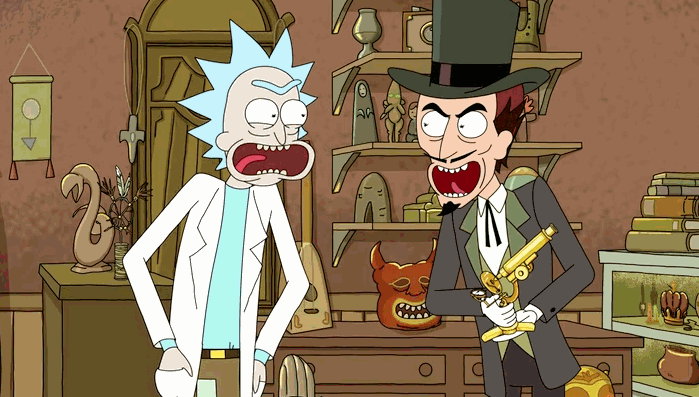
Psychiatric/Medical History
Rick denied any major medical procedures. He reported that he believes he is smart enough to handle any potential medical operations that he might need and would never let a “doctor” near his body (note: the quotes around doctor are included to represent the air quotes that Rick used when saying the word).
Rick also denied any previous psychiatric treatment, other than his session with Dr. Wong, stating that he does not respect therapy or therapists.
Diagnostic Impressions
All assessment material was collected by viewing the hit television series, Rick and Morty. Rick’s view and style of engagement with himself, the people around him, and the world around him suggests that he may be experiencing a personality disorder. The two most likely personality disorders that Rick is exhibiting are Antisocial Personality Disorder or Narcissistic Personality Disorder. Rick also appears to be experiencing impairment related to his alcohol use.
Beginning with Antisocial Personality Disorder, the individual must exhibit a pattern of disregarding the rights of others since the age of 15. However, it is not clear whether this is the case with Rick, given the information available. To meet the diagnostic criteria, three or more of seven potential criteria must be met. First, “Failure to conform to social norms with respect to lawful behaviors, as indicated by repeatedly performing acts that are grounds for arrest.” Rick does this fairly consistently throughout the show. As mentioned earlier, he builds and sells weapons to the assassin, Krombopulos Michael. The second criteria that Rick meets is “Deceitfulness, as indicated by repeated lying, use of aliases, or conning others for personal profit or pleasure.” In The Rickshank Redemption, Rick admits to lying and manipulating Beth to have Jerry removed from the home so he could be the undisputed patriarch and a hero. “Irritability and aggressiveness, as indicated by repeated physical fights or assaults” is met with Rick assaulting several individuals throughout the series. Rick meets “Reckless disregard for safety or self or others” by putting himself and Morty in harm’s way on almost every adventure that they go on. And lastly, “Lack of remorse, as indicated by being indifferent to or rationalizing having hurt, mistreated, or stolen from another.” In the pilot episode, Rick tells Morty to shoot the soldiers chasing them, as they are just robots. When Morty realizes they are definitely not robots, Rick says: “It’s a figure of speech, Morty. They’re bureaucrats. I don’t respect them. Just keep shooting, Morty. You have no idea what prison is like here!” As such, with the information we have, and some speculation about Young Rick, Rick does appear to meet the diagnostic criteria for Antisocial Personality Disorder.
Rick also potentially meets the diagnostic criteria for a Narcissistic Personality Disorder. A Narcissistic Personality Disorder consists of “a pervasive pattern of grandiosity (in fantasy or behavior), need for admiration, and lack of empathy, beginning by early adulthood…” When assessing for this disorder, the constellation of symptoms seems to not fit perfectly. For example, when assessing the first criteria, “Has a grandiose sense of self-importance (e.g., exaggerates achievements and talents, expects to be recognized as superior without commensurate achievements,” we can start to see already this does not fit Rick. It is well established that, although Rick thinks highly of himself, he is actually the smartest individual in the universe. Rick does not appear to be “preoccupied with fantasies of unlimited success, power, brilliance, beauty, or ideal love.” Although he believes he is uniquely intelligent, this does not appear to translate to feelings that Rick is “special and unique and can only be understood, or should associate with, other special people.” He has friends from all walks of life and, although he insults and hurts them, he does love his family. Rick does, however, “require excessive admiration” (see Noob Noob from The Vindicators 3 episode.) He is clearly “interpersonally exploitative.” He does “lack empathy.” He is seen as “believing others are envious of him.” And he is depicted as “showing arrogant, haughty behaviors or attitudes,” So, technically, Rick does meet for the five required criteria for Narcissistic Personality Disorder.
However, when consulting the Differential Diagnosis section of the Diagnostic and Statistical Manual, we can try to differentiate some of the overlap between Antisocial Personality Disorder and Narcissistic Personality Disorder. The DSM-5 points out: “However, narcissistic personality disorder does not necessarily include characteristics of impulsivity, aggression, and deceit. In addition, individuals with antisocial personality disorder may not be as needy of the admiration and envy of others…” Individuals with Narcissistic Personality Disorder present with self-esteem that is “almost invariably very fragile” often taking the form of a “need for constant attention and admiration.” Although Rick does meet for the diagnostic criteria for Narcissistic Personality Disorder, his overall constellation of symptoms is much better captured by the Antisocial Personality Disorder, at least based on what has been depicted in the show so far. Sometimes when certain disorders have overlapping diagnostic criteria and presentations, we have to dig a bit deeper into how the disorders are conceptualized to really understand the underlying problem.
Additionally, Rick seems to experience impairment due to his alcohol use. As such, he was assessed for an Alcohol Use Disorder. To meet the diagnostic criteria, two of the ten potential types of impairment or distress must be present within a 12-month period. The first diagnostic criteria that Rick meets is “Alcohol is often taken in larger amounts of over a longer period than was intended.” An example of this is depicted in Vindicators 3: The Return of Worldender. Throughout the trials that The Vindicators face, Rick is seen as becoming more and more intoxicated. At one point, he is too intoxicated to devise a trial for the Vindicators to face, and simply asks them to shoot basketball hoops “or something.” The next diagnostic criteria that Rick meets is “Continued alcohol use despite having persistent or recurrent social or interpersonal problems caused or exacerbated by the effects of alcohol. There have been multiple times that Rick has threatened Morty, either directly or indirectly through his actions (e.g., Rick threatens Morty with a knife while he is intoxicated in M. Night Shamy-Aliens). Despite this, and other examples, Rick continues to drink even though it creates conflict with his family. The next diagnostic criteria that Rick meets is “Recurrent alcohol use in situations in which it is likely to be physically hazardous.” An example of this is in the pilot episode when Rick drunkenly takes Morty into this home-made spaceship to set off a neutrino bomb in order to get a fresh start. It should be noted that other diagnostic criteria may be met even if not reported. Additionally, some diagnostic criteria require recurrent instances of behavior. However, because we only see a snapshot of time in Rick’s life throughout the show, certain inferences are made about the recurrence of behavior and certain diagnostic criteria may be missed. One piece of collateral information that is relevant to Rick’s alcohol use comes from the episode Ricksy Business. Bird Person tells Morty that Rick is in great pain and uses alcohol to numb himself, explaining that Rick’s catchphrase “wubba lubba dub dub” actually means “I am in great pain. Please help me.”
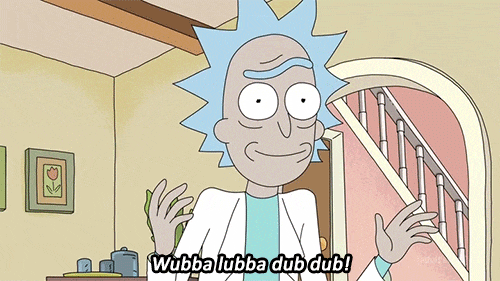
Treatment Recommendations
In sum, Rick’s constellation of symptoms seems to be best captured by an Antisocial Personality Disorder and a comorbid Alcohol Use Disorder. It is worth noting that although Rick appears to meet for an Antisocial Personality Disorder, he does not appear to fall within the subset of those individuals who exhibits psychopathy. Specifically, despite his treatment of his family, Rick does appear to have genuine concern and affection for them and, for them alone, feel concern about how his behaviors might impact them. This is important to consider in treatment planning as there is some evidence to suggest that individuals experiencing psychopathy might actually become worse due to therapy.
Currently, we do not have any treatments for Antisocial Personality Disorder that have received strong empirical support. However, if we could have identified these behaviors in Rick as an adolescent, family-focused, multicomponent treatment would have been an option to target and hopefully change these types of behaviors. We do, however, have research suggesting that multiple types of treatment (including Motivational Enhancement Therapy, designed to strengthen desire and ability to decrease substance use) are effective for treating Alcohol Use Disorder.
Status at Termination
Rick never came to therapy again.
THE GORDON/SAXTON TEST
Was the portrayal of mental illness accurate?
Although the situations in which Rick is depicted are sometimes preposterous, the specific symptoms that he is depicted as experiencing do appear to be accurate. Rick is a very complex, multidimensional character and we are looking forward to seeing how he evolves and what we learn about him as the show goes on.
Was the character struggling with mental health issues depicted with compassion?
Rick and Morty does portray Rick with a sense of compassion. Although the show is masked with crude humor and adventure, the underlying story is about a man who is in a lot of pain and does not know how to cope with it all. In a lot of ways, the show is a metaphor for Rick himself. Under the goofs and antics, there is a really sad story waiting to be told.
Overall rating:
On a scale from “wubba lubba dub dub” to “Hit the sack, Jack!” we rate Rick and Morty as “BURGERTIME!” That is, to say, we really, really like this show. It does not set out with the intention of depicting mental health, and it is REALLY crude, but the show just works. It is a lot of fun and hits you with blasts of seriousness and emotion that all come together in a really great overall show. We definitely recommend it.
